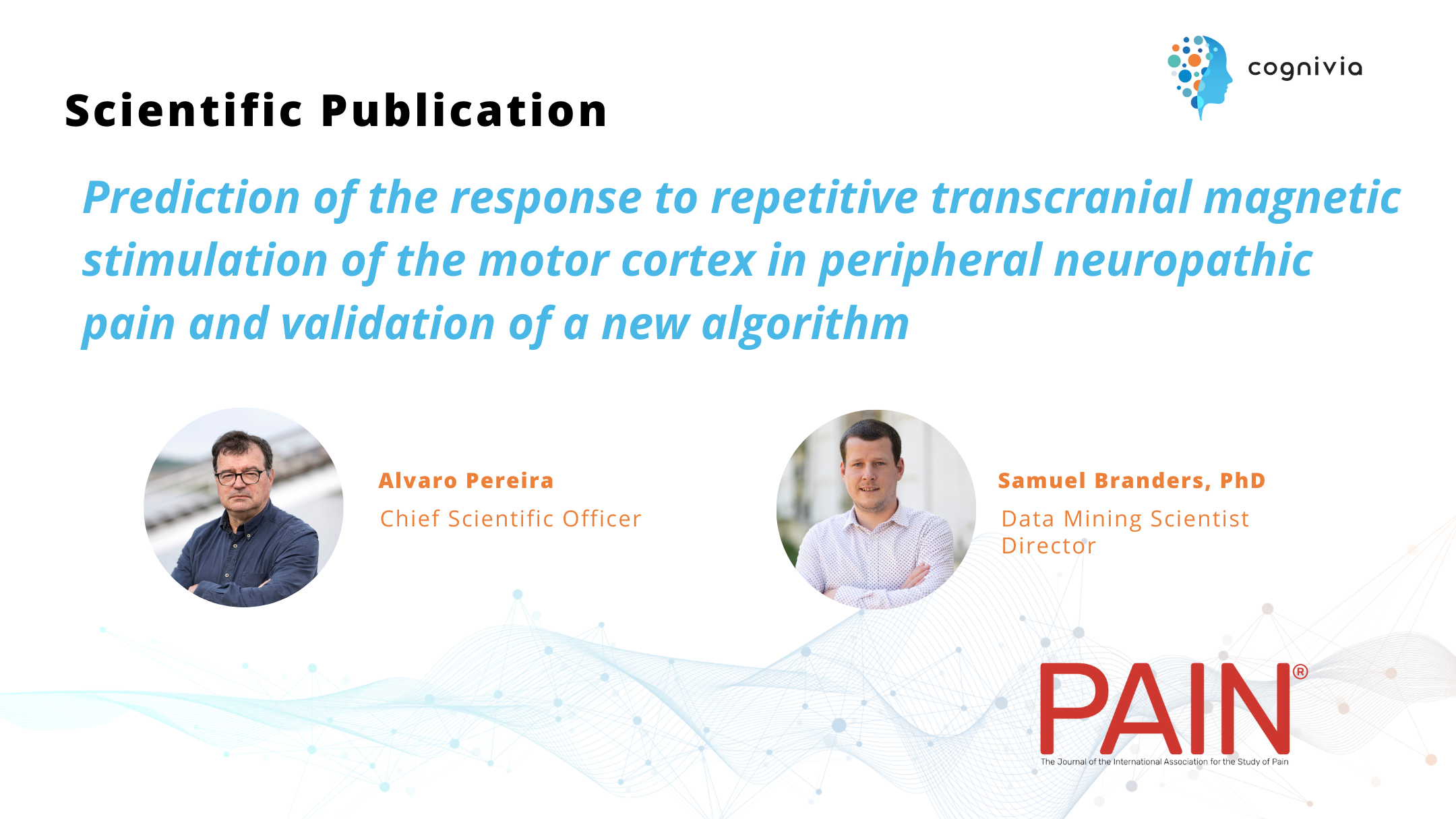Alternative and safe therapeutic approaches for neuropathic pain are needed. Interdisciplinary and collaborative research is essential to advance therapeutic approaches for patient in need. Currently, Motor cortex repetitive transcranial magnetic stimulation (M1-rTMS) is prescribed as a trial-and-error treatment in analgesia. However, rTMS is a time-consuming and expensive therapy, and more than half of the patients do not respond to it. This further highlights the need to develop reliable indicators of treatment success or failure for rTMS in analgesia. Personalized pain management, based on pain biomarkers or patient-reported outcomes, has been widely advocated for pharmacotherapy. Although a few studies have investigated potential predictors of the analgesic response to rTMS, data in this area are still limited and lack consistency. With this mindset Cognivia’s scientists were approach by leading acamedic researchers Didier Bouhassirah and Nadine Attal, to perform a secondary analysis on the results of their recent multicenter trial, a randomized placebo-controlled double-blind study where the efficacy of M1-rTMS, DLPFC was assessed, and placebo-rTMS in patients with peripheral neuropathic pain.
Based on secondary analysis from this trial, Cognivia developed and validated a simple and user-friendly predictive algorithm that specifically targets the treatment response to active M1-rTMS in peripheral neuropathic pain. Their findings revealed an effective predictive model that can forecast individual responses to motor cortex repetitive transcranial magnetic stimulation (M1-rTMS) with an impressive 85% sensitivity and 84% specificity. This breakthrough offers personalized treatment pathways, improving patient outcomes and reducing unnecessary treatments for nonresponders. This algorithm has the potential to be applied to any chronic pain condition and can greatly optimize therapeutic outcomes while avoiding costly and unnecessary treatments for patients in need. The full paper, published in Pain in June 2024, the journal of the International Association for the Study of Pain, provides detailed insights into the methods used and the significant findings of this research.
Conclusion
Cognivia’s dedication to advancing precision medicine in chronic pain management underscores our commitment to improving patient care through innovative research. By developing a predictive algorithm with high sensitivity and specificity, we are paving the way for more effective and personalized treatment strategies. This achievement not only enhances the quality of life for patients suffering from neuropathic pain but also has the potential to set a new standard in the field of pain management. We look forward to continuing our collaboration with leading researchers and clinicians to bring forward more breakthroughs that can transform patient outcomes and healthcare practices.

